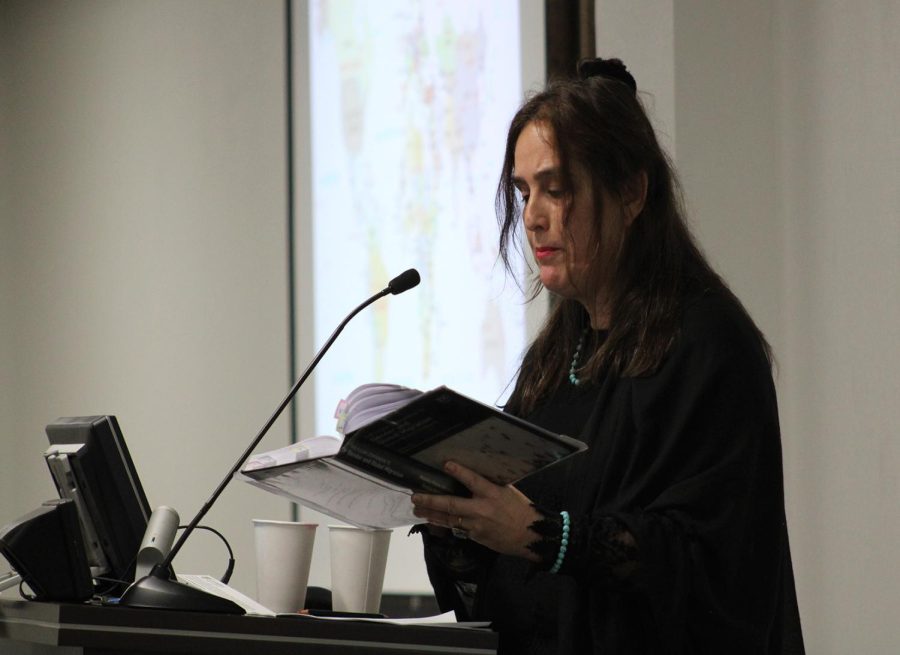In honor of Women’s History Month, numerous events throughout UTEP are explaining different scenarios women are going through around the world. One event at UTEP was a book reading led by Natalia Ribas-Mateos, Ph.D. As one of the editors of the book, “The Elgar Companion to Gender and Global Migration Beyond Western Research,” Ribas-Mateos shared plenty of information that showed what women around the world experience throughout their lives. After some words from Josiah Heyman Ph.D., director of the UTEP Center for Inter-American Border Studies and professor of sociology and anthropology, Ribas-Mateos began going through each chapter of the book.
From China to Brazil, Ribas-Mateos explained the various cases in the book including the many accounts from different women, along with the history behind the correlation between gender and global migration.
While going through the book, Ribas-Mateos explained how the process of migration flows around the world, humanitarian risks and internal displacements. Colonial histories and contemporary feminisms were also covered, which explained how modern movements began. Other issues included in the presentation were extractivism and colonialism in South America, which led to some gender, specifically female, resistance and migration.
Glimpses of working-class women and how they have been displaced were also topics covered in the book talk. Such cases examined included said working class women who lived in Northern Mexico who migrated to the U.S. in search of more opportunity.
Ribas-Mateos is very passionate about the topic, and it could be seen throughout her presentation. After starting research on the topic of migration in the late 1990s, she began to expound on how migration and gender were correlated around the world. Today, she still studies the topic and closely examines the way it works near the border.
“I’ve been working on this topic since 1999, and I got my Ph.D. in 1996 on migration,” Ribas-Mateos said. “I’m from a place in Spain called Catalonia, and for us migration was new back then because Spanish people were migrants. They would go to Germany, England and to Belgium, they were like they were migrants. Suddenly, Spain became a country of immigration. For us as young scholars, that was the new thing. The first book ever on female migration in Spain was (made) by me and my Ph.D. supervisor. And then by then she was the one, the first one who published a book on female migration. It’s something that I have been working all my life and in different ways.”
Elisha Nunez is a staff reporter and may be reached through [email protected]













